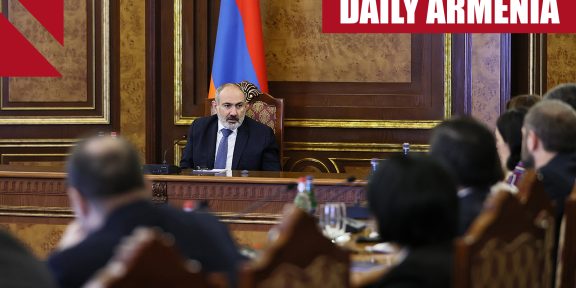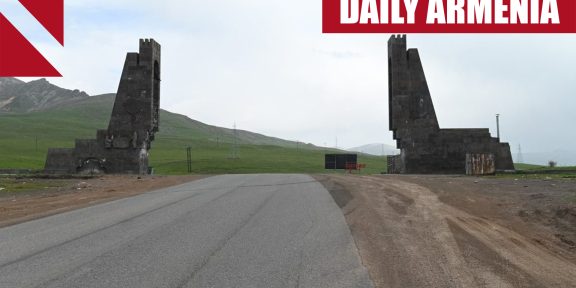By Liz Fuller
27 November 2018
As allegations of official malpractice intensify in the run-up to the Georgian presidential run-off on 28 November, two Western diplomats have warned that the country is at risk of jeopardising its reputation as regional leader in terms of democratisation.
Former NATO Parliamentary Assembly president Rasa Jukneviciene has expressed concern at what she termed “the disproportionate use of administrative resources” on behalf of a single candidate, meaning former Foreign Minister Salome Zourabichvili, who although nominally independent is backed by the ruling Georgian Dream party. Jukneviciene said that tactic does not help to promote democracy. She went on to describe the election as “a big step backwards” compared with the parliamentary ballot of October 2012, in which Georgian Dream defeated the ruling United National Movement (ENM) of then President Mikheil Saakashvili.
British Ambassador Justin McKenzie Smith for his part was quoted by InterPressNews as writing on Twitter that Georgia’s reputation as a democratic state is its most precious achievement. He warned that it is difficult to estimate the long-term consequences if that reputation were damaged.
In the weeks prior to the initial round of voting on 28 October, Georgian Dream’s leadership appeared supremely confident that Zourabichvili would poll the 50 percent plus one vote required for a first-round win. In the event, she garnered just 38.64 percent, less than 1 percent more than her closest challenger, Grigol Vashadze of the ENM. Even though constitutional amendments pushed through parliament by the ENM in 2010 transferred most presidential powers to the prime minister, leaving the president a largely ceremonial figure, the ballot was perceived from the outset as a pitched battle in which victory would bestow a clear strategic advantage in the run-up to the parliamentary election due in 2020.
The outcome of the 28 October vote thus proved a rude awakening for Georgian Dream, whose founder and chairman, billionaire businessman Bidzina Ivanishvili, has since twice acknowledged that his party disappointed and alienated many voters by failing to deliver on its promises to improve the economic situation and living standards and reduce unemployment. By the same token, the ENM construed the result as indicating that a Vashadze win was within its grasp, given that Davit Bakradze, who placed third with 10.97 percent, called on his supporters to vote for Vashadze in the second round.
The ENM and media outlets sympathetic to it, including the independent TV station Rustavi-2, have accordingly ramped up their war of words against GD, accusing its members of intimidating and pressuring voters and of planning to rig the outcome of the run-off.
NGOs too have expressed alarm at suspected malpractice. On 20 November, three civil society groups, Transparency International – Georgia, the Georgian Young Lawyers’ Association (GYLA), and the International Society for Fair Elections and Democracy (ISFED), publicly appealed to law enforcement agencies to investigate information they received the previous week from an employee of the Public Service Development Agency (PSDA). According to that unidentified whistle-blower, the agency was engaged in an exercise to print and issue to specific persons up to five fake identification documents to enable them to cast multiple votes for Zourabichvili.
PSDA head Soso Giorgadze told journalists he would sue the NGOs in question for defamation, while Justice Minister Tea Tsulukiani said they had lied. She furtherimplied that they may have been acting on orders from the ENM.
Georgian Dream immediately rejected those accusations, and the Prosecutor General has launched an investigation. Prime Minister Mamuka Bakhtadze pledged that the second round vote will conform to “the highest standards.”
Just days later, however, Georgia’s Central Election Commission announced that it has added to the electoral roll a further 9,781 voters who either turned 18 since 28 October, or registered for the first time as living abroad, or only received formal identification documents after the first round of voting. The news portal Civil.ge, however, cited data from the State Statistics Office showing that there were only 3, 478 live births in Georgia in November 2000. Moreover, CEC records show that only 134 new voters abroad have been registered.
Transparency International – Georgia, the GYLA, and ISFED have similarly denounced as “an unprecedented case of vote-buying” the initiative announced by Prime Minister Bakhtadze on 19 November under which the Cartu Foundation of which Ivanishvili was the founder will cover 1.5 billion laris ($564 million) of bad debts taken out by some 600,000 persons who are now unable to repay what they owe.
Political commentators Khatuna Lagazidze and Vakhtang Dzabiradze both believe that whichever candidate wins the run-off, the new president will prove unable to serve as a guarantor of national unity as prescribed under Article 69.1 of the Georgian constitution, and will enjoy only a very low level of public trust.
Former Defense Minister Tina Khidasheli for her part predicted that “the trauma inflicted on the population by this election will last a very long time and give rise to political nihilism.”
















